 India is most vulnerable to the impacts of climate change. It has long been a key player in international climate negotiations and has begun implementing a diverse portfolio of policies nationally and within individual states to improve energy efficiency, develop clean energy sources, and prepare for the impacts of a changing climate. About 33 states and territories have also announced state-level action plans to address climate change. This recent national survey reveals that large majorities are worried about climate-related hazards, including severe heat waves (85%), droughts and water shortages (85%), and severe cyclones and floods (76% and 71%, respectively). Better understanding of public climate change knowledge, beliefs, risk perceptions, and policy supports decision-making.
India is most vulnerable to the impacts of climate change. It has long been a key player in international climate negotiations and has begun implementing a diverse portfolio of policies nationally and within individual states to improve energy efficiency, develop clean energy sources, and prepare for the impacts of a changing climate. About 33 states and territories have also announced state-level action plans to address climate change. This recent national survey reveals that large majorities are worried about climate-related hazards, including severe heat waves (85%), droughts and water shortages (85%), and severe cyclones and floods (76% and 71%, respectively). Better understanding of public climate change knowledge, beliefs, risk perceptions, and policy supports decision-making.
Jennifer Marlon, Anthony Leiserowitz, Jagadish Thaker, Emily Goddard, Liz Neyens, Swetha Kolluri, Seth Rosenthal, Jennifer Carman and Naga Raghuveer Modala. "Variations in climate opinions across India". Yale Program on Climate Change Communication. August 06, 2024. https://climatecommunication.yale.edu/... (Contributed by Gregory Autin).
Posted on 12/01/25
Recent Abstracts
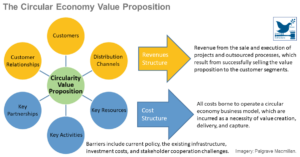
Delivering the Circular Economy: A Toolkit for Policymakers
The circular economy offers business leaders and government a clear opportunity for long-term growth that is less dependent on cheap materials and energy and can restore and regenerate natural capital. This report provides an actionable toolkit for policymakers for embarking on a circular economy transformation that d ...
Posted on 14/10/22
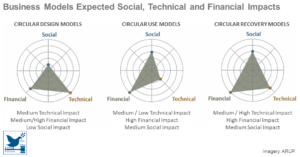
Circular Business Models for the Built Environment
Circular business models (CBMs) create additional value by taking a systemic view across the whole life cycle of assets, using new technologies, and applying advanced design approaches. This added value demonstrates the feasibility of the business case for adopting CBMs, the social, economic and environmental benefits ...
Posted on 12/10/22
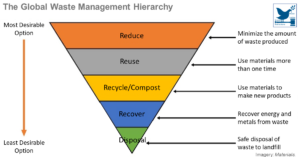
Categorisation System for the Circular Economy
The lack of a commonly accepted and sufficiently inclusive definition and circularity measurement methodology hampers the transition to a more circular economy in numerous ways. To counter this, this circular economy categorization system was proposed comprising 14 circular categories organized in four high-level grou ...
Posted on 10/10/22
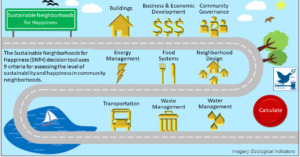
Stakeholder Collaboration in Sustainable Neighborhood Projects—A Review and Research Agenda
Stakeholder collaboration in neighborhood projects facilitates networking and knowledge transfer. Construction companies participate in the task definition, research institutions contribute to feasibility testing, civil society organizations (CSOs) reinforce environmental approaches, and international partners increas ...
Posted on 05/10/22
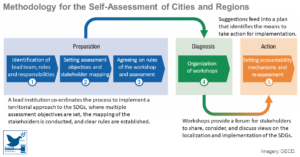
OECD Toolkit for a Territorial Approach to the SDGs
This action checklist helps government policymakers in uptaking, implementing, and localizing the Sustainable Development Goals (SDGs), as a tool for better policies and living quality. It covers (1) policies and strategies, (2) multi-level governance, (3) financing and budgeting, (4) data and information, and (5) sta ...
Posted on 03/10/22

The Great Carbon Capture Scam
The oil industry invented “net zero” as the perfect alternative to slowing oil production to halt global heating. The netting deducts some carbon from total CO₂ emissions to create “net zero emissions”. The oil industry thereby claims to capture and store CO₂, while using this “captured carbon” for enhanced oil recov ...
Posted on 30/09/22
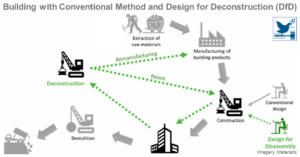
Key Approaches to Construction Circularity: A Systematic Review of the Current State and Future Opportunities
Construction circularity is identified in 1) material design, 2) building design, 3) construction and facility management, 4) urban sustainability development, and 5) system precondition. These five broad categories represent different levels of circularity implementation in construction and can be further decomposed ...
Posted on 28/09/22
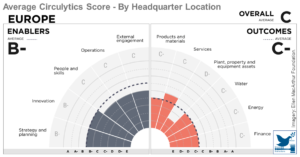
Material Circularity Indicator (MCI)
The Material Circularity Indicator (MCI) allows companies to identify circular value from their products and materials and mitigate risks from material price volatility and material supply. It enables users to analyze and evaluate a range of environmental, regulatory, and supply chain risks for their designs and produ ...
Posted on 26/09/22
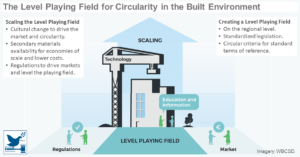
Scaling the Circular Built Environment: Pathways for Business and Government
The private and public sectors need to create a level playing field for circular materials, products and services to become the new normal in the built environment. The transition to a circular economy calls for introducing new valuation methods and implementing long-term policies that encourage the scaling of circula ...
Posted on 23/09/22
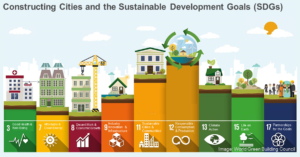
The Framing of a Sustainable Development Goals Assessment in Decarbonizing the Construction Industry – Avoiding “Greenwashing”
To avoid the use of the Sustainable Development Goals (SDGs) for greenwashing, construction projects must include both long-term and short-term factors in assessing their SDG sustainability. However, companies rarely use SDG assessments as a tool for decisions for real change towards more sustainable and equitable cor ...
Posted on 21/09/22
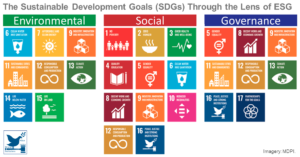
Asset Management Industry Confronts the Challenges Presented by Climate Change Transition
Climate change transition and a rapidly evolving regulatory landscape confront the asset management industry with considerable challenges and present risks and opportunities for investing. Asset managers must strengthen disclosure of the climate-related risks and opportunities and support “sustainability” initiatives ...
Posted on 19/09/22

Talking a Good Game: Stop Paying Lip Service to Collaboration
Collaboration with businesses, public institutions, and civil society organizations is generally seen with a thumbs-up or a comment on a social media posting. Individuals often express interest in engaging in a collaborative initiative, but seldom follow through with collaborative action. This article suggests that w ...
Posted on 16/09/22
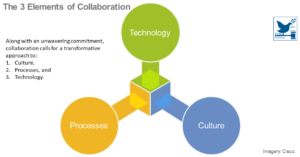
The Collaboration Imperative
The earth’s atmosphere, natural resources, and biological ecosystems are of fundamental value to business and society, much of which is destroyed through the ways we use these complex and fragile systems. Meeting the challenges of climate change, resource depletion, and ecosystem loss calls for improved collaboration ...
Posted on 14/09/22
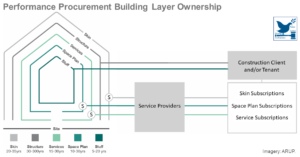
From Principles to Practices: Realising the Value of Circular Economy
This report demonstrates to real estate investors and construction clients the value and process of implementing circular economy principles in the built environment. How value is created from real estate assets is determined and established by investors and construction clients through investment requirements, tenure ...
Posted on 09/09/22
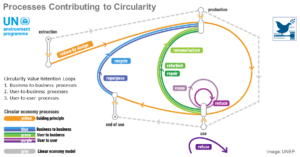
Applying Principles of Circular Economy to Sustainable Tourism
The circular tourism model must be implemented immediately for us not to exceed the ecological ceiling through the polluting practices of our current linear tourism model and to ensure tourism does not fall short on the social factors. As the tourism has a multiplier effect, it could be a catalyst to move the whole ec ...
Posted on 07/09/22

